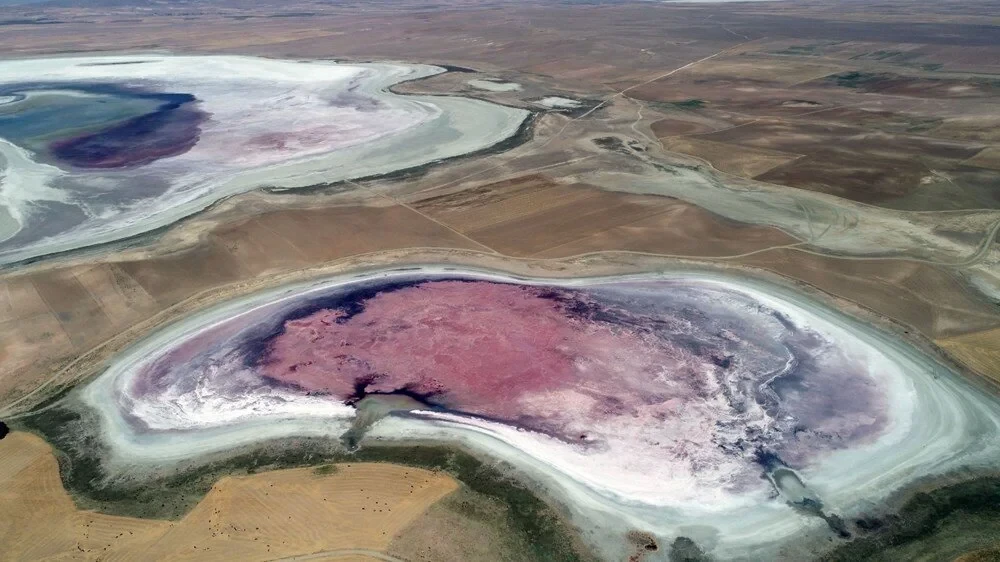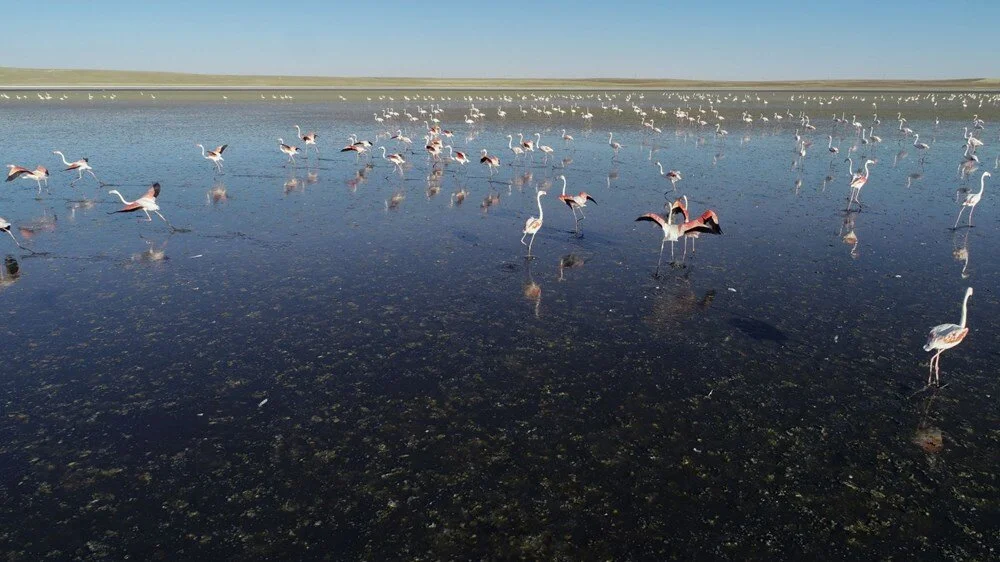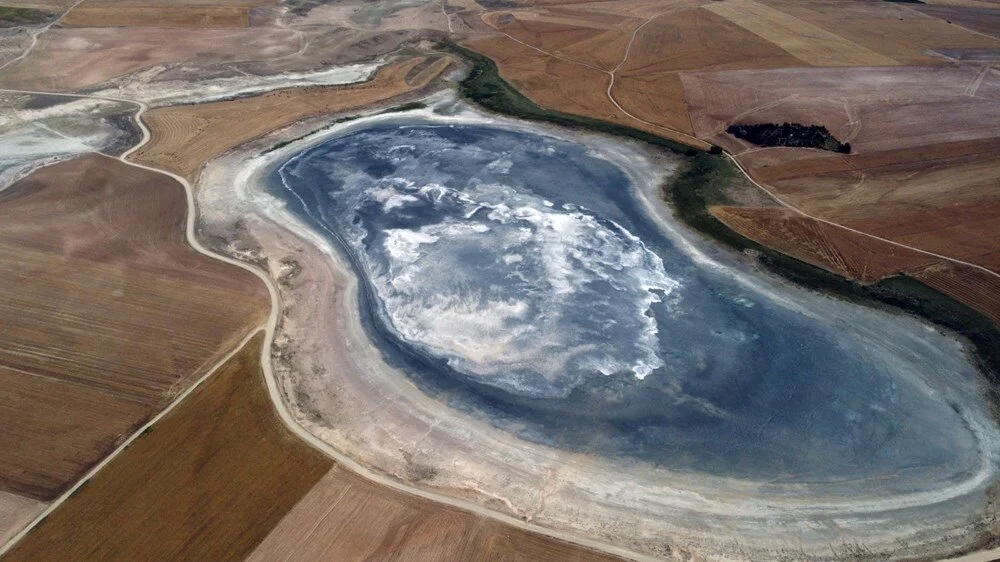‘Flamingo paradise’ in Türkiye’s Kucuk Lake drying up due to mistakes and climate change
 Küçük Lake in Konya, Türkiye. (Photo via DHA)
Küçük Lake in Konya, Türkiye. (Photo via DHA)
Kucuk Lake, widely known as a “flamingo paradise” in Konya, has dried up due to the unsustainable use of groundwater and the effects of climate change. The drying of the lake has resulted in the loss of habitat for 180 bird species, including flamingos.
Location and ecological significance of Kucuk Lake
Located 5 kilometers east of the district of Kulu, near Salt Lake, Kucuk Lake, also referred to as “Kulu Lake” by locals, covered an area of 860 square kilometers.
The lake, adjacent to Duden Lake, was a shallow, closed body of water, providing crucial breeding and feeding grounds for bird species.
Among the 180 bird species dependent on the lake were flamingos, summer ducks, red-crested pochards, ferruginous ducks, avocets, Mediterranean gulls, and laughing gulls. The lake housed approximately 42,000 birds annually.

Decline of water sources for lake
Kucuk Lake’s primary sources of water included underground aquifers, the Degirmenozu Stream, and small surrounding creeks. However, unsustainable water usage in the region, combined with the increasing impact of climate change, has drastically reduced water levels.
In 2020, the lake experienced a significant decline in water, leading to the growth of the bacterium Artemia salina, which turned the lake’s waters pink. Since then, water levels continued to diminish, ultimately leading to the lake complete drying up.

Loss of habitat in the Kucuk Lake
The loss of Kucuk Lake’s water has devastated the natural habitat for flamingos and other bird species, erasing one of the region’s key ecological sites.
Environmentalists have pointed to both human-driven groundwater depletion and the growing challenges of climate change as contributing factors in the loss of this important wetland.



